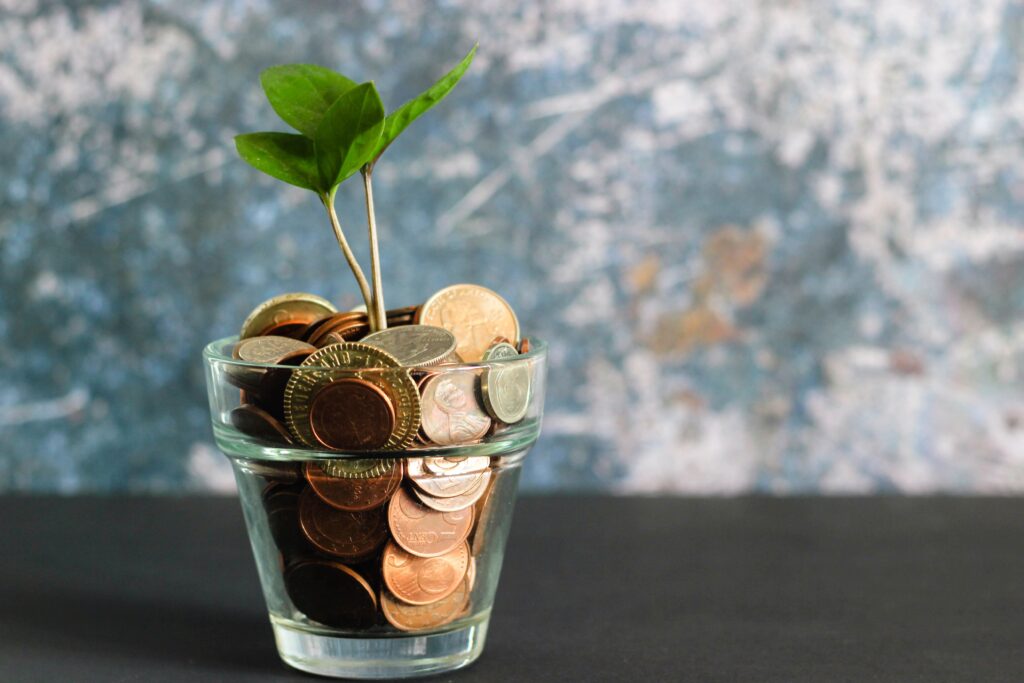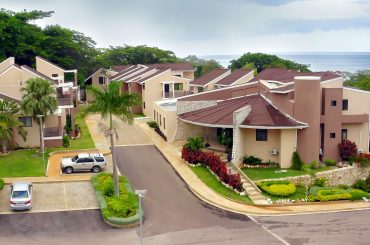This article is part one of a four part series.
Real estate in Jamaica can be a good investment if you have the right strategy.
There are many options:
- Buy land
- Build on your own land
- Invest in a fixer-upper, flip it, and sell it
- Buy a home, keep it for a few years, and sell it
- Get into the Airbnb market
- Become a developer
Your real estate investment strategy depends heavily on your mindset and financial constraints.
So, it’s less about the option you choose and more about how prepared you are mentally and financially.
You’re taking on a risk, one that requires a lot of time, research, and knowledge of how real estate in Jamaica works.
This article will guide you through:
- The risks involved with investing in real estate in Jamaica
- How best to prepare your finances for real estate investment
- Tips for choosing the real estate investment option that would work for you
- Drowning out the noise of the naysayers
My aim is to teach you how to adjust your mindset and set practical financial goals.
The Risks Of Investing In Real Estate In Jamaica
Real estate investment doesn’t provide instant returns. It can take months to sell a property you purchased with the intention of quickly putting it back on the market. On average, it takes roughly three to six months to sell a property in an area with high demand.
Let’s say that you choose to either rent your property or transform it into a short term rental. Both are fickle markets. There can be months when you:
- Don’t get any bookings for your short term rental
- Have challenges with getting money from your renter
- Can’t find anyone to rent the property
- Have to repair the damage caused by the renter
- Have to deal the neighbours because the tenant is a nuisance or does not keep the property clean
Those difficult months don’t make your mortgage payments go away if you chose that financing option. So, you’ll need to plan your finances to cover these potential risks.
I suggest having at least three months worth of mortgage payments stored away in a Rainy Day Fund. Also, reserve at least 2-4% of the revenue each month for major repairs such as painting, servicing air conditioning units, patching walls, fixing leaks, and electrical issues.
Here’s another risk to consider. You may not be able to quickly recover if there’s a downturn in the market or if the neighborhood in which you invested loses its appeal. So, be prepared to either wait months (or even years) to recoup your investment or not recoup it at all.
The stakes are high when you’re investing in real estate in Jamaica. But, great risk also means greater rewards. Real estate investment can give you a high return on investment (ROI) in both the short and long-term. The longer you keep the investment, the greater the return in the right market.
Prepare Your Finances For Investing In Real Estate In Jamaica

You’ll need about US$25,000 to begin your real estate investment journey regardless of the real estate investment option you choose. It’s possible to successfully invest in real estate in Jamaica despite our small economy. But, you’ll need to be intentional about getting your finances in order so that you’re not derailed by personal emergencies.
Here are some questions you should ask yourself:
- Are you able to pay for all of your personal expenses? In other words, do you have a Rainy Day Fund?
- How much do you have in savings?
- Do you have consumer debt?
- Do you have a budget?
- Are your income and expenses aligned with your long-term goals?
- Do you feel pressured by your friends, family, and society to buy things that you don’t need or want? In other words, are you in charge of your money or are you caught up in maintaining an image set by someone else, like society, family, or friends?
Carefully consider these questions. Investing in real estate requires a strong shift in priorities.
Set A Finance Challenge
I have a challenge for you that’s intended to open your eyes to what it really means to work hard for your money.
The average number of work hours in a typical day is 8 hours. So, you work 480 minutes per day, 5 days each week on average.
You can adjust these figures to reflect what your actual work week looks like.
Now, group your expenses into five main budget categories. I suggest these:
- Taxes
- Housing
- Transportation
- Food
- Personal/Family (utilities, health, clothing, entertainment, savings, etc).
Yes, don’t forget taxes, especially if you’re self-employed!
Add up your expenses in each category and determine how much the total in each category is as a percentage of your total expenses.
For simplicity, we’ll use this breakdown of expenses as a percentage of a household or individual budget to illustrate my point:
- Taxes: 25%
- Housing: 30%
- Transportation: 15%
- Food: 10%
- Personal/Family: 20%
Total Budget: 100%
Taxes are usually taken out of your pay before it’s given to you if you’re not self-employed. It’s a lot of money!
In 2021, Jamaica’s median income tax rate is 25%.
Let’s apply the percentages listed above to the hours in a day.
Time Spent Paying Taxes = 25% x 480 minutes = 120 minutes
Housing = 30% x 480 minutes= 144 minutes
Transportation = 15% x 480 minutes = 72 minutes
Food = 10% x 480 minutes = 48 minutes
Personal/ Family = 96 minutes
So, most of your workday is spent working to pay for taxes, housing, and transportation. You only begin working for yourself outside of those 480 minutes, provided you have a traditional 9 to 5 job.
How you use that additional time to earn more money will help you achieve your real estate investment goals faster. Here are two things that you could do.
Develop Highly Valued Skills To Earn More Money
Getting certified in high-demand skills can help you find money making opportunities outside of your 9 to 5. Some possibilities include:
- Becoming a certified electrician, mechanic, hairdresser, welder, carpenter etc.
- Social media management
- Digital marketing
- Software development
- Website development
- Public speaking
Increase Your Visibility At Work
Your goal may be more focused on climbing the corporate ladder. One way you can do this is by taking on high profile assignments that position you for promotions and/or better paying opportunities.
Pro Tip : Don’t increase your lifestyle expenses while you’re on this path of personal and career development. Your goal during this time is to increase your savings so that you can invest in real estate.
This leads me to my next point about preparing your finances for investing in real estate in Jamaica.
Learn The Discipline Of Saving
You must set aside some money and have some in reserve for emergencies. Start small, even if it’s just US$5 per week in the beginning. Increase this amount over time to at least 15% of your total pay after taxes.
The most important thing is starting. It’ll seem challenging initially but you’ll start patting yourself on the back when you have enough money to start investing in real estate.
Don’t worry about how much interest you’re earning while you’re developing this habit. Instead, focus on becoming more comfortable with living on less of your income.
Pro Tips: Keep your savings in an account with low bank fees. Also, ensure that the account doesn’t have a debit card attached. This makes it deliberately inconvenient for you to take money from it.
Drown Out The Naysayers

My husband and I had people around us who didn’t agree with our real estate decisions. Here’s our story.
We started our real estate journey 20 years ago. Instead of looking for our dream home, we looked for a house in neighbourhoods in St. Andrew that were preferred by both homeowners and renters.
I went online and studied the houses in those areas. I looked at the:
- Prices those houses sold and rented for
- Major expenses that came with owning rental property
Also, I went to open houses and asked real estate agents about rent rates and types of houses that were in high demand. It took us over five years to find the right one for us.
We bought a two-bedroom apartment and although we didn’t have children at the time, many people in our inner circle wondered why we decided to do this instead of buying a three-bedroom house. We could afford that type of house according to the bank.
But, it meant we’d have a large monthly payment for the next thirty years! That was a huge commitment for us. We didn’t want to take on too much of a financial burden because we still wanted to enjoy life. Eating out and travelling with friends were two things we really enjoyed doing.
So,we bought the apartment and kept our monthly mortgage payment at around 25% of our combined gross income at the time. We’re happy we did this because now that we’re older, our idea of where and how we want to live has also changed.
The Lesson
Be patient. There may be naysayers who’ll wonder why you’re making these decisions and there may be setbacks along the way.
Keep moving forward. It’ll be worth it. If you stick with your goal and take it step-by-step, eventually you’ll have more control over your time and money.
How Can You Choose The Real Estate Investment Option That’s Right For You?
Use The Internet As Your Resource Center
- Check out free online resources to learn the basics.
- Devote a couple of hours each week to reviewing these resources.
- Use this information to determine the strategy that interests you without breaking the bank.
Some of these resources may focus on international markets. But, the foundational knowledge should still apply to Jamaica.
For example, two of the things you would assess if you’re flipping a properties are whether:
- The value of the improved property exceeds that of all your expenses
- That margin is worth the effort
The inputs are the same when you compare Jamaica’s real estate market with international real estate markets. But, the actual figures will differ. For example, the closing costs, realtor fees, interest payments and duration of the project will be different.
If you’re interested in rental income, you would check that the property has a positive cash flow. That is, the rent should cover the operating expenses and mortgage payments.
The rules for analysing properties in both markets are similar, but the numbers will differ. This difference is because:
- The price and rents for similar properties will differ because the market conditions are rarely the same in different countries
- Closing and selling costs will differ
- Mortgage rates (fixed vs. variable) and terms will differ
- The types of investment properties available in Jamaica aren’t exactly like those available internationally
Luckily, there are many local podcasters and bloggers who provide a useful perspective of the Jamaican real estate market. You can find them by doing a Google search.
Study The Market
Micro and macro economic conditions also influence the suitability of a real estate investment option. For instance, Jamaica’s economy has been flat and is trending downward because of the global effect of the coronavirus pandemic from March 2020 to 2021. This means that, coupled with job losses in key industries (tourism and consumer services), consumer confidence is low, rent rates are low, and retail lending terms are more stringent.
If this continues and recovery is delayed for a long period, you run the risk of putting yourself into financial distress if you have a mortgage and insufficient income. You have to carefully consider the property you’re investing in to ensure that you can cover any fall off in revenue.
Consider these two things when trying to identify an investment property in Jamaica:
- Study the market for at least 10 available properties and run the numbers on them.
- Keep accurate records of the:
- Selling prices
- Neighborhood quality
- Length of time on the market
- Condition of the property
- Other details you deem important based on your analysis
Doing these two things will help you become better at scouting out investment-grade properties.
Tap Into Local Experts And Investors
You could also find local experts and mentors who can give you advice. Most will charge a nominal fee but that investment can better help you make the right decision.
Be willing to ask them meaningful and practical questions. For example, present them with about two or three properties that are on the market which you think are good deals and ask for their feedback. They can point out things that you may have overlooked.
I must apply a word of caution though. Be wary of expensive training courses that promise instant results. There’s nothing easy or instantaneous about real-estate investment.
Final Words
Investing in real estate in Jamaica can yield great returns. But, you must also be prepared for the risks. Think carefully about your investment options and frame them within the context of your present finances. Once you’ve chosen an investment option that’s right for you, stick with it.
You may also like these articles:
How To Get Started As A Real Estate Developer In Jamaica
4 Steps To Build A House In Jamaica
What challenges are you having with investing in real estate in Jamaica? Let me know in the comments below.
